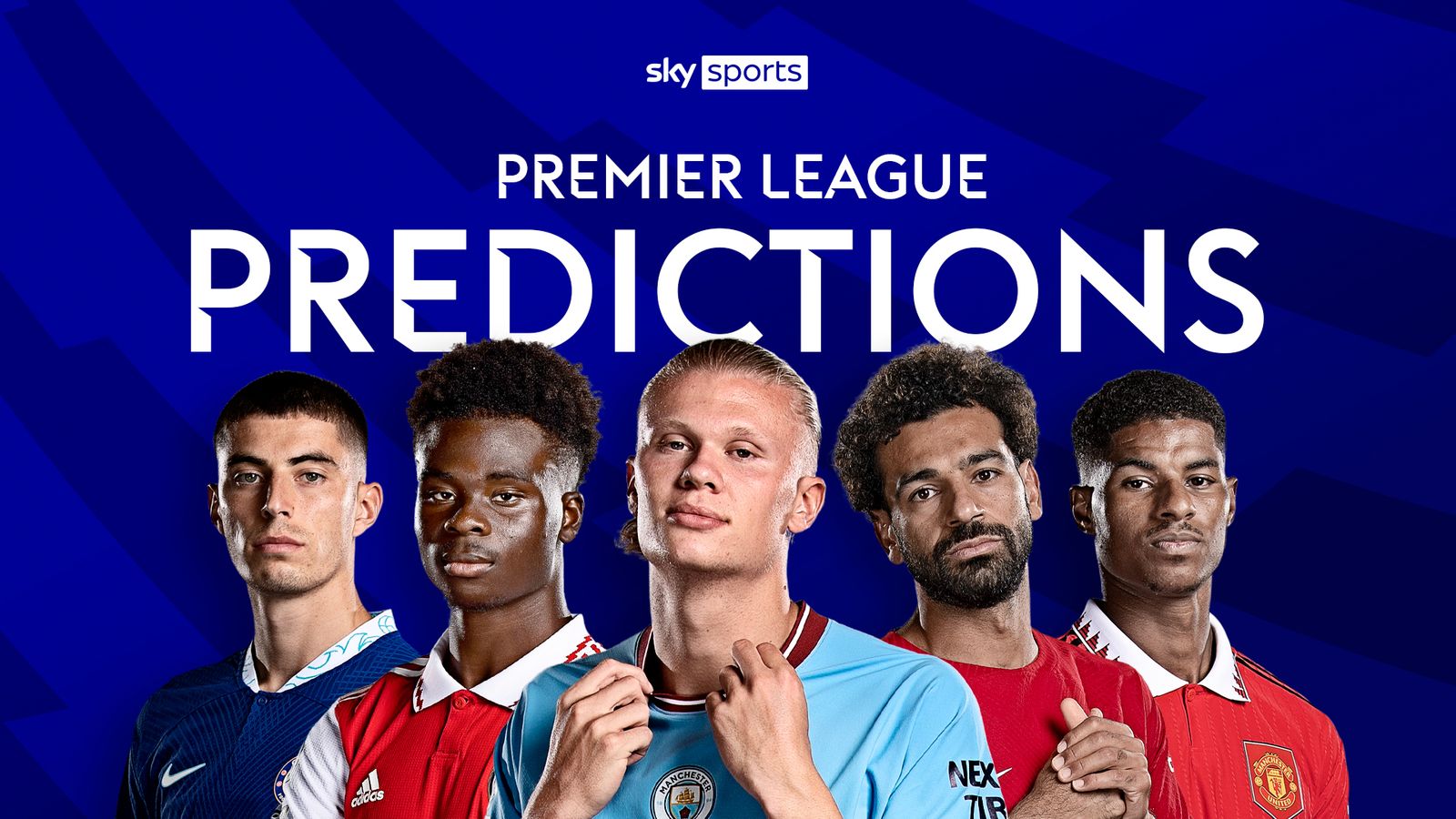League Cup picks are generating significant buzz as the competition heats up. This year’s tournament promises thrilling matchups and unexpected results, making accurate predictions a challenge for even the most seasoned analysts. We delve into the intricacies of team performance, betting odds, and external factors to provide insightful predictions and betting strategies for this captivating competition.
From analyzing recent team form and key player performances to considering potential injuries and home-field advantages, our comprehensive analysis leaves no stone unturned. We also explore the impact of external factors, such as weather conditions and media narratives, on match outcomes. By examining historical data and current trends, we aim to offer readers a clear picture of the likely contenders and potential upsets.
League Cup Competition Overview

The League Cup, officially known as the Carabao Cup due to sponsorship reasons, is an annual English football competition involving clubs from the English Football League (EFL) and the Premier League. It offers a pathway for smaller clubs to compete against established giants, adding an element of unpredictability and excitement to the season.
League Cup Format, League cup picks

The competition follows a knockout format. Teams from the Premier League and EFL Championship enter at later stages, while lower league teams begin earlier. Matches are typically played over two legs in the early rounds, but progress to single-leg matches in the later stages. Extra time and penalties are used to decide ties if necessary.
Participating Teams
All 92 professional clubs in England participate, creating a diverse field of teams with varying levels of experience and resources. This includes all 20 Premier League teams and the 72 clubs from the EFL (Championship, League One, and League Two).
Historical Significance
The League Cup holds a significant place in English football history. It provides opportunities for smaller clubs to achieve national recognition and compete against top-tier teams. Winning the League Cup is a notable achievement, showcasing a team’s ability and resilience throughout the competition.
Notable League Cup Winners
Liverpool holds the record for most League Cup wins with 9 titles. Manchester City, with 8 wins, is a close second. Other notable winners include Aston Villa, Tottenham Hotspur, and Manchester United, each demonstrating the competition’s broad reach across English football history.
Analyzing Team Performance in the League Cup
Analyzing recent form, key players, and team strengths and weaknesses is crucial for predicting League Cup outcomes. This section delves into the performance of some top contenders, considering potential injury impacts.
Recent Form of Top Contenders
Teams like Manchester City and Liverpool, given their Premier League dominance, often start as favorites. However, their recent form, including league results and cup performances, must be closely examined. A dip in form can significantly affect their chances, while consistent performances from other teams can elevate their prospects. For instance, a team like Arsenal, showing consistent improvement in the league, could be a strong contender.
Key Players and Their Impact
Identifying key players is essential. A team’s success hinges on the performance of its star players. For example, Erling Haaland’s goal-scoring prowess is crucial for Manchester City, while the midfield creativity of players like Kevin De Bruyne significantly influences their attacking capabilities. Injuries to such players can drastically alter a team’s prospects.
Team Strengths and Weaknesses
A comprehensive analysis requires understanding each team’s strengths and weaknesses. Manchester City’s superior squad depth is a significant strength, allowing them to rotate players effectively. However, their reliance on possession-based play could be a weakness against teams employing a counter-attacking strategy. Conversely, a team with a strong defensive unit might lack the attacking firepower to consistently win matches.
Potential Injuries and Their Impact
Injuries are a significant factor influencing team selection and performance. The absence of a key player can disrupt a team’s strategy and significantly reduce their chances. For example, a long-term injury to a central defender could weaken a team’s defensive solidity, increasing their vulnerability to conceding goals.
Predicting Match Outcomes

Several factors influence match outcomes, including home advantage, team morale, and head-to-head records. Probabilities are assigned based on these factors.
Factors Influencing Match Outcomes
Home advantage consistently plays a role. Team morale, boosted by recent wins or hampered by losses, also significantly impacts performance. The tactical approaches employed by managers and the overall team chemistry also play a vital role in determining the match outcome. Unexpected events, like a red card early in the game, can dramatically alter the course of a match.
Head-to-Head Records
Past encounters provide valuable insight. A team with a strong head-to-head record against an opponent might be favored.
| Team A | Team B | Wins (A) | Wins (B) |
|---|---|---|---|
| Manchester City | Liverpool | 2 | 1 |
| Arsenal | Manchester United | 1 | 2 |
Potential Match Scenarios and Probabilities
Based on form, team strengths, and head-to-head records, probabilities can be assigned to different match outcomes. For example, a match between Manchester City and a lower-league team might have a 90% probability of a Manchester City win, while a match between two top contenders might have a more even distribution of probabilities.
Potential Upsets
- A lower-league team defeating a Premier League giant due to an inspired performance and tactical brilliance.
- A top contender losing to a mid-table team due to key injuries or a tactical mismatch.
- A team with a strong home advantage unexpectedly winning against a higher-ranked opponent.
Evaluating Betting Odds
Comparing odds from different bookmakers and understanding implied probabilities is crucial for informed betting.
Comparison of Betting Odds
| Bookmaker | Manchester City Win | Draw | Liverpool Win |
|---|---|---|---|
| Bookmaker A | 1.50 | 4.00 | 6.00 |
| Bookmaker B | 1.45 | 4.20 | 6.50 |
Interpreting Betting Odds and Implied Probabilities
Odds represent the probability of an outcome. For example, odds of 1.50 for a Manchester City win imply an approximately 67% probability of them winning (1/1.50). By comparing odds across different bookmakers, potential value bets can be identified.
Potential Value Bets
Value bets arise when the perceived probability of an outcome is higher than that implied by the odds. For example, if you believe Manchester City has an 80% chance of winning but the odds offer a 70% implied probability, placing a bet on Manchester City could represent a value bet.
Betting Strategies
Various betting strategies exist. These include hedging (placing bets on multiple outcomes to minimize risk), staking (managing bet amounts strategically), and following specific betting systems (e.g., Martingale).
Visualizing Data
Visual representations, like charts and graphs, enhance understanding of team performance.
Visual Representation of Team Performance Data
Charts and graphs effectively illustrate trends in team performance. For instance, a line graph could display goal-scoring trends over time, highlighting periods of high and low productivity. Bar charts can compare various statistics across different teams, such as average possession, shots on target, or tackles won.
Hypothetical Goal Scoring Trends Chart
A hypothetical chart could display a team’s goal-scoring rate over the course of the League Cup season. It would show a clear upward trend, indicating improvement in their attacking efficiency as the tournament progresses. The chart could also identify specific matches where the team performed exceptionally well offensively.
Visual Aids and Understanding Team Statistics
Visual aids significantly improve understanding. They allow for quick identification of patterns and trends that might be missed when analyzing raw data. They make complex statistical information more accessible and engaging, enabling a more comprehensive analysis of team performance.
Visual Representation Comparing Team Squad Depth
A heatmap could effectively visualize squad depth. Each player would be represented by a cell, with the color intensity reflecting their overall rating or importance to the team. Darker colors would indicate more crucial players, while lighter colors would represent players with less impact on the team. The heatmap could be organized by position, making it easy to compare the depth at each position across different teams.
Considering External Factors: League Cup Picks
External factors, including weather and off-field events, can impact match outcomes.
Understand how the union of korean league cup can improve efficiency and productivity.
Impact of Weather Conditions
Adverse weather conditions, such as heavy rain or strong winds, can affect playing conditions and influence match outcomes. Slippery pitches can make it difficult for players to maintain control of the ball, leading to more errors. Strong winds can affect passing accuracy and long-range shots. These factors can significantly impact a team’s performance, especially if they are not accustomed to playing in such conditions.
Off-Field Factors
Managerial changes, player transfers, and internal conflicts can all impact team performance. A new manager might introduce different tactical approaches, while player transfers can alter team dynamics. Internal conflicts can affect team morale and cohesion, negatively impacting performance on the pitch.
Influence of Media Narratives
Media narratives can affect team morale and performance. Positive media coverage can boost confidence, while negative coverage can lead to increased pressure and decreased morale. The media’s portrayal of a team can influence public perception, which can in turn affect player performance and overall team dynamics.
Unexpected Events Affecting Match Predictions
Unexpected events, such as a last-minute injury to a key player or a controversial refereeing decision, can significantly alter the course of a match and affect the accuracy of pre-match predictions. These events are difficult to predict and can lead to significant upsets in the competition.
Ultimately, predicting the League Cup winner remains a complex undertaking, influenced by a multitude of factors beyond simple statistical analysis. While our analysis provides a strong foundation for informed decisions, the inherent unpredictability of the sport ensures that surprises are always possible. However, by carefully considering the elements Artikeld above – team form, player performance, betting odds, and external influences – you can significantly improve your chances of making successful League Cup picks.
